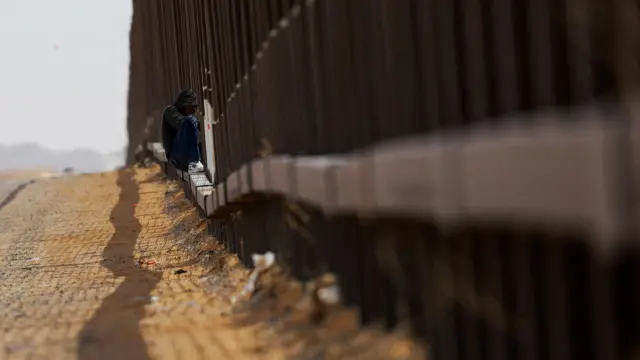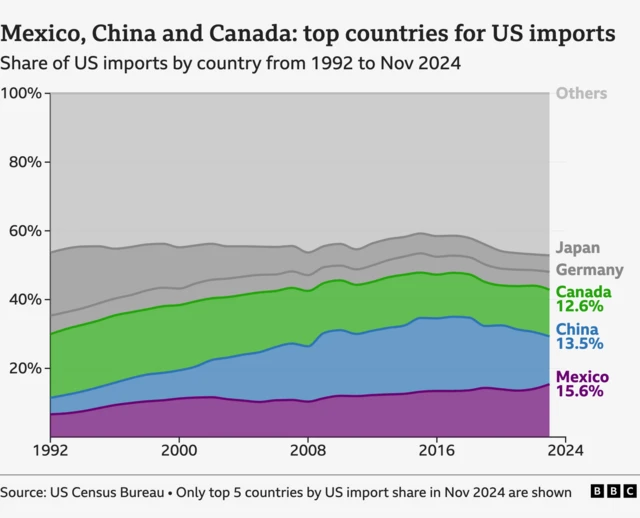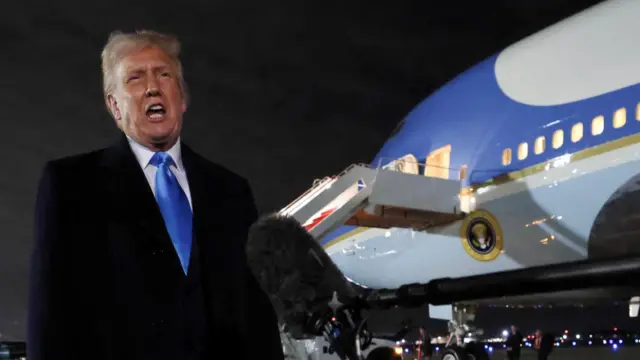Drugs, immigration, deficits: Why is Trump threatening tariffs?published at 07:50 GMT 3 February
 Image source, Reuters
Image source, ReutersPart of the US-Mexico border wall
From Tuesday, tariffs of 25% will hit Canadian and Mexican goods entering the US, with 10% on Chinese goods. But why?
Canada:
The White House said on Saturday that tariffs were "necessary to hold China, Mexico, and Canada accountable for their promises to halt the flood of poisonous drugs into the United States".
Trump has also repeatedly needled Canada about becoming the 51st US state.
On his Truth Social platform, he claimed that the US pays "hundreds of billions of dollars" to subsidise Canada, and suggested that "without this massive subsidy, Canada ceases to exist as a viable country".
"Canada should become our Cherished 51st State. Much lower taxes, and far better military protection for the people of Canada — AND NO TARIFFS!"
Mexico:
Like with Canada, Trump has said drugs and border security are behind the 25% tariff on Mexican goods, citing the "major threat of illegal aliens and deadly drugs killing our citizens, including fentanyl".
China:
During his election campaign, Trump warned of tariffs as high as 60% on Chinese goods. He’s settled on 10% for now, but tariffs of as much as 25% were imposed during his first term.
"We’re going to tell China that if you continue to send fentanyl to Mexico or any place else and it comes into our country, we’re going to charge you a 25% tariff on everything you sell into the United States of America," he said during a campaign rally.
The EU:
The EU threats seem more related to trade deficits - that is when a country imports more from a country than it exports.
"They don't take our cars, they don't take our farm products, they take almost nothing and we take everything from them," Trump said overnight. "Millions of cars, tremendous amounts of food and farm products."




